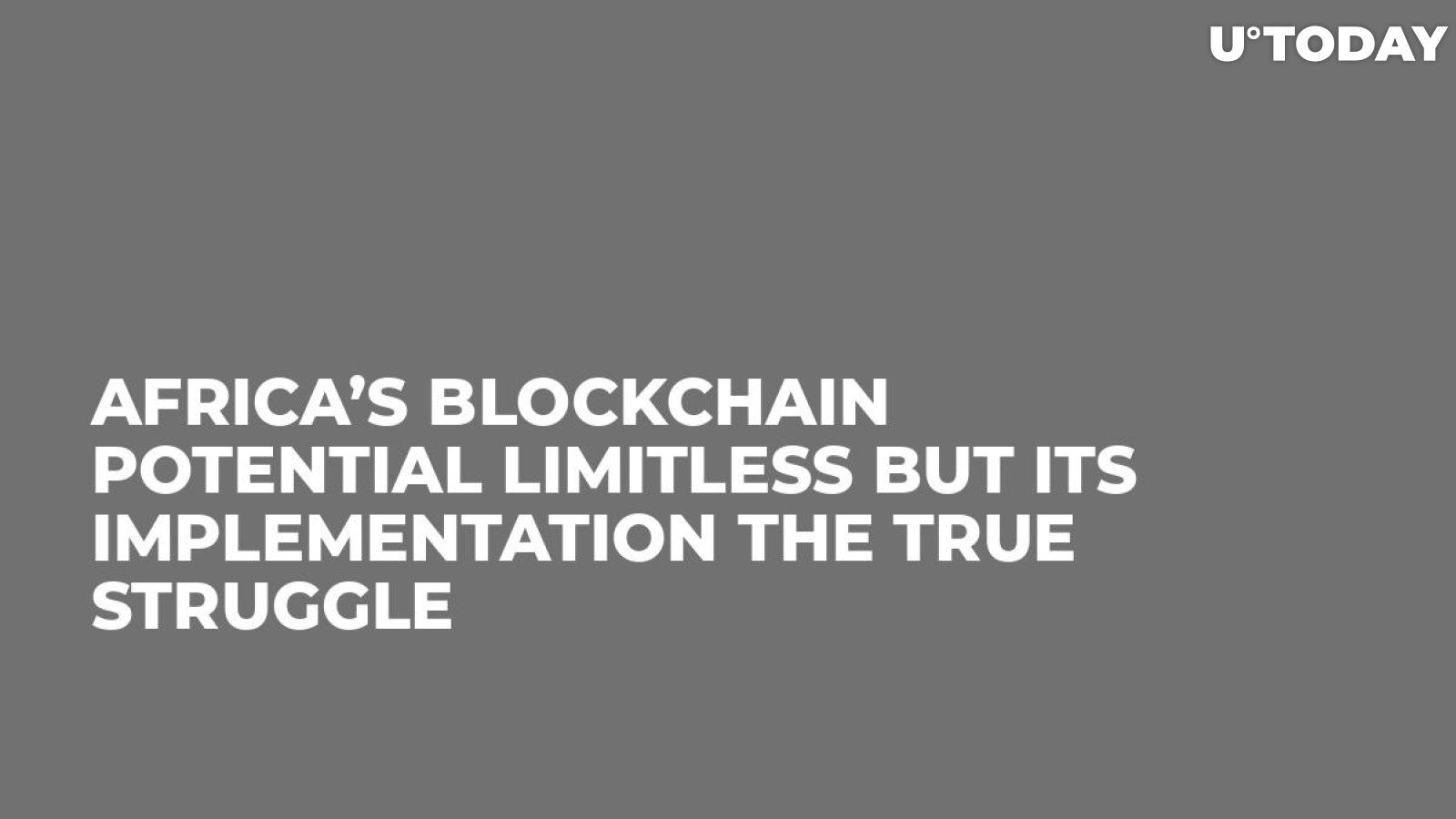Cryptocurrencies were born out of the crisis. It was Bitcoin that came into being in the wake of the 2008 banking crisis as a way for individuals to free themselves of the tyranny of the institutionalized financial system.
The financial struggles seen predominantly across the west are at least wavering, but in Africa, the construct that has been created by a colonial past has propped up a financial system that is not purpose-built for the continent. For that reason, a new financial system, such as one based on Blockchain, is an enticing prospect.
It is not only the financial side that is worth looking at in an African context. The same principles that make cryptocurrencies poignant also extend to Blockchain technology and that can be used well in an African context. The transparency of cryptocurrencies and Blockchain makes voting open to much fairer elections.
However, the issue is not the potential that Blockchain has in an African setting, it is rather the implementation of a Blockchain ecosystem. Currently, the mass roll-out of a Blockchain ecosystem is being stymied across the first world despite all the technology and resources available. These same resources are not even available to Africa — but there are much cleaner foundations.
A new ground zero
One issue that could slow down the adoption of cryptocurrencies and Blockchain across the first world is the institutionalized systems already in place. Things like Bitcoin burst onto the scene with a bullish attitude that they could replace banks and other financial institutions, as well as regulators. However, as time has gone on it has been clear that the entrenched system is far too strong to be shifted by one technology, no matter how decentralized it is.
However, in Africa, the foundation that banks and regulators have been built upon is inherently shaky. Regulators are corrupt and self-gratifying while the banks are also not the basis of money with such a large population happily being unbanked.
This is where the main root of cryptocurrency adoption is in Africa, the fact that banks are difficult and centralized to reach for a population that lacks solid transport and is predominantly rural.
Cryptocurrencies offer people access to their money with more ease than a traditional bank, as well as the fact that traditional banking rules and fees are often insurmountable for some of the world’s poorest people.
In terms of technology advancements, Blockchain also offers a new building block for Africa. Things like supply chain, elections, charity organizations and a number other sectors plagued by corruption can benefit from a lack of centralized control and a transparent nature.
“Governments can choose to be in a race to be the most restrictive, or alternatively to be the most embracing and innovating when it comes to Blockchain technology,” Neil Blazevic, founder of Africa Digital Assets, explains.
Many African countries suffer from instability and poor financial and physical infrastructure. Blockchain, with its exchanges secured by cryptography, thrives in such environments.
“The best uses for Blockchain are seen where many parties from different sectors lack trust or have different interests as it can reduce corruption, increase transparency, automate accounting and improve processing times,” says Blazevic.
The difficulties of getting going
But, despite all the possibility and potential, there is a number of major handbrakes which are slowing, if not crippling totally, the ability for Blockchain to reach its potential. From the outset, Blockchain technology is an advanced digital technology; however, most of Africa’s population lives rurally with little access even to the Internet.
And, by being one step behind, where people are still seeing the Internet as new, Africa will have difficulty understanding Blockchain.
Naomi Snyman, Blockchain Lead at Standard Bank in South Africa, explains just how Blockchain is like the Internet was a few decades or so ago.
“If we think about how the Internet started, we didn’t understand why we needed it or how it even works. But it has completely revolutionized our lives. The same counts for Blockchain,” Snyman said.
So, with there being a lower understanding of even the Internet, education will be a big problem, so will the actual access to the Internet to reap the benefits for the common person. While the unbanked may not have access to banks due to their proximity, they may be even further away from having easy access to the Internet.
Still, there is a boom in cryptocurrencies being witnessed in places like Zimbabwe which is going through a long-standing financial crisis. Dash is trying to be a leader in places like Zimbabwe and Venezuela, even making it possible to send cryptocurrencies through SMS.
Another big barrier to entry, which is the case across the globe, is regulation. There is a strong sense of power and privilege in governmental positions in Africa, and to that end, a system that is disintermediated like Blockchain is not very appealing to that power structure.
However, Snyman adds:
“In this world, you have to make peace with the fact that you will be disintermediated, your way of making money now and operating will be disrupted because we are in a space where everything is being decentralized. Blockchain basically is a piece of technology that allows users to interact directly with one another through nodes instead of through a central party. Creating new networks and platforms are definitely the biggest benefits of this technology. The spirit of Blockchain is collaboration.”
A tipping point
On paper, there is very little denying that Africa can benefit from the pure integrity of what Blockchain can bring. However, the continent sits on a tipping point where it can either wait and fall behind the rest of the globe again, seeing how they handle this new technology, or they can take the lead and leapfrog ahead.
Africa has been baying for a system which it can shape and built on its own without being beholden to former colonizers or other systems, and Blockchain can be such a system, but it needs to be more than another copy-job, it needs to be a truly African solution.










